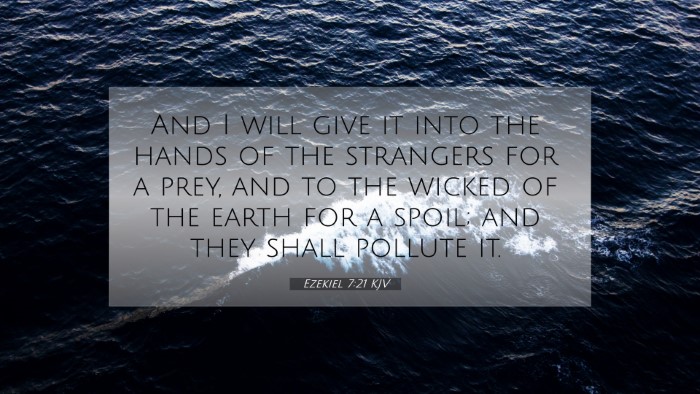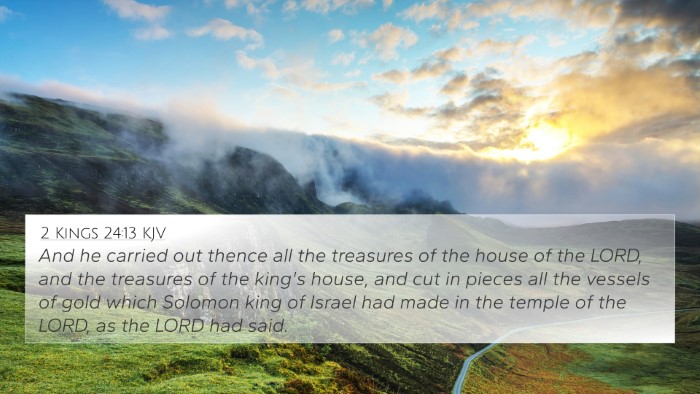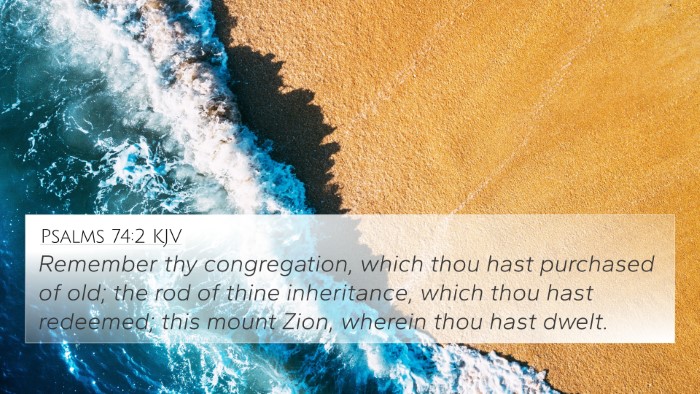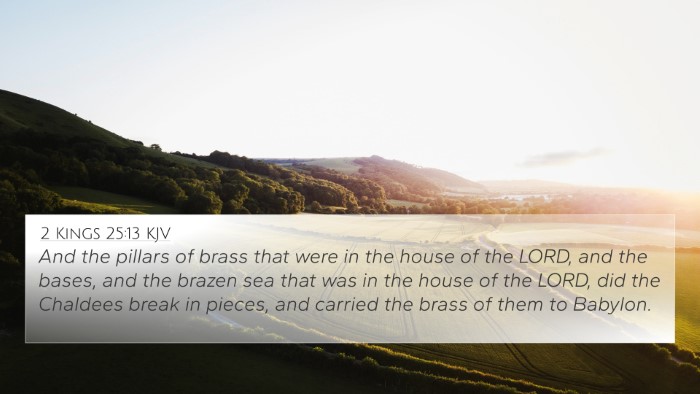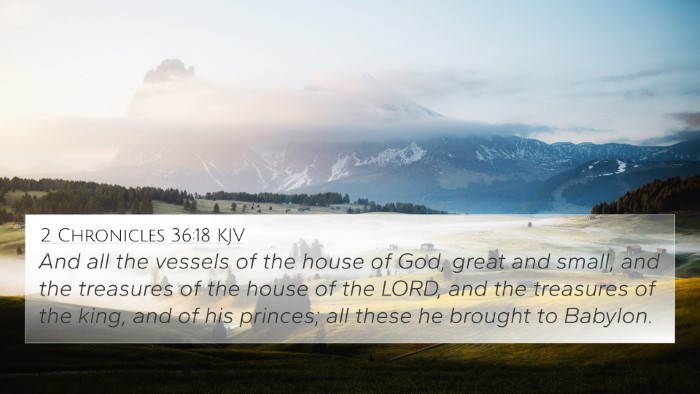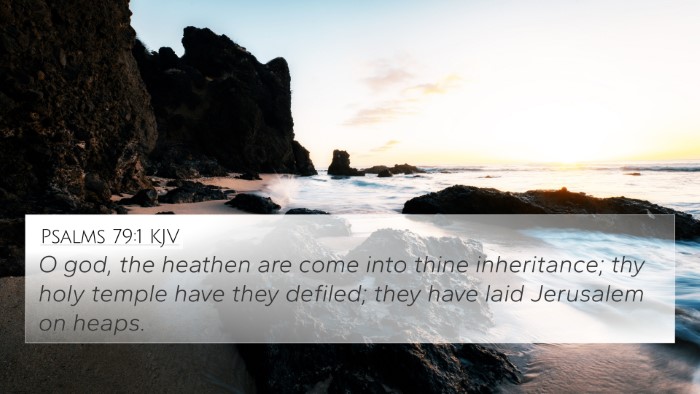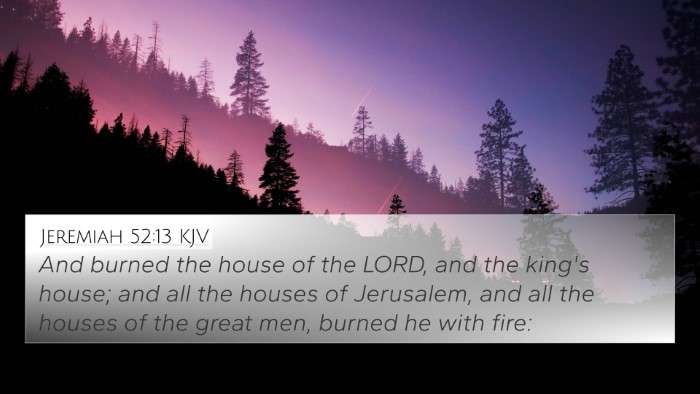Ezekiel 7:21 - Summary and Meaning
Ezekiel 7:21 states: "And I will give it into the hands of the strangers for a prey, and to the wicked of the earth for a spoil; and they shall pollute it." This verse speaks of God’s judgment upon Israel, symbolizing the consequences of their idolatry and disobedience.
Commentary Insights
This verse can be interpreted through various public domain commentaries, which elucidate its meaning in the context of God's justice and the fate of Israel. Here are some key insights:
-
Matthew Henry: He emphasizes that this verse highlights God's sovereignty in dispensing justice. The "strangers" refer to foreign nations, reflecting how God uses even non-believers to execute His judgments. This is a warning to Israel about the seriousness of their sins and a call to repentance.
-
Albert Barnes: Barnes notes that the "spoiling" relates to the capture and destruction that would come upon Jerusalem. The idea of pollution signifies that the land will be desecrated, showcasing the severity of their transgressions and God's displeasure.
-
Adam Clarke: Clarke focuses on the broader implications of the text, suggesting that the verse encapsulates the theme of loss—the loss of their homeland due to moral failures. It serves as a grim reminder of the consequences faced by nations when they turn from God's ways.
Thematic Connections
This verse forms a significant part of the broader narrative found within Ezekiel regarding judgment and restoration. It establishes a framework for understanding similar Biblical themes.
Related Bible Verses
- Jeremiah 7:34: This verse also addresses God’s displeasure with the unfaithfulness of Israel, emphasizing the impending destruction.
- Isaiah 34:11: Reflects God's judgment and the desolation of cities as a consequence of their iniquities.
- Daniel 9:12: Discusses the fulfillment of God's threats toward the people, showcasing the seriousness of sin.
- Lamentations 2:21-22: Conveys the sorrow and desolation faced by Israel, paralleling the effects of God’s judgments.
- 1 Peter 4:17: A New Testament parallel emphasizing that judgment begins at the house of God.
- Revelation 18:2: Discusses the fall of Babylon, drawing parallels to the judgment observed in Ezekiel.
- Hebrews 10:31: Addresses the fearful nature of falling into the hands of the living God, corresponding to the warning in Ezekiel.
- Amos 3:2: Highlights God's unique relationship with Israel and the accountability that comes with it.
- Micah 3:12: Speaks of impending ruin due to the leaders' corruption, echoing themes presented in Ezekiel.
- Matthew 24:2: Jesus references the destruction of the temple, aligning with Ezekiel's warnings about judgment.
Cross-Referencing Insights
Understanding Ezekiel 7:21 benefits from a broader examination of cross-references throughout the Bible. The connections between these scriptures reveal the unfolding narrative of God's justice and mercy:
- The use of cross-references demonstrates the consistency of God's character throughout scripture.
- This verse invites readers to explore the interconnectedness of prophetic literature and its fulfillment in both the Old and New Testaments.
- Tools for cross-referencing, such as Bible concordances, can be beneficial for examining the implications of this verse further.
Conclusion
In summary, Ezekiel 7:21 serves as a pivotal reminder of God's judgment against sin and a call to moral righteousness. The insights from prominent commentaries shed light on the enduring themes of accountability and divine sovereignty. Through cross-referencing Biblical texts, one can gain deeper appreciation and understanding of this seminal moment in the scriptures.


